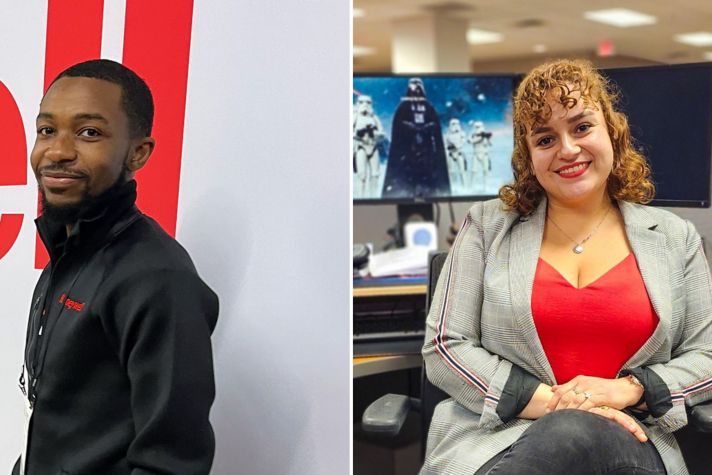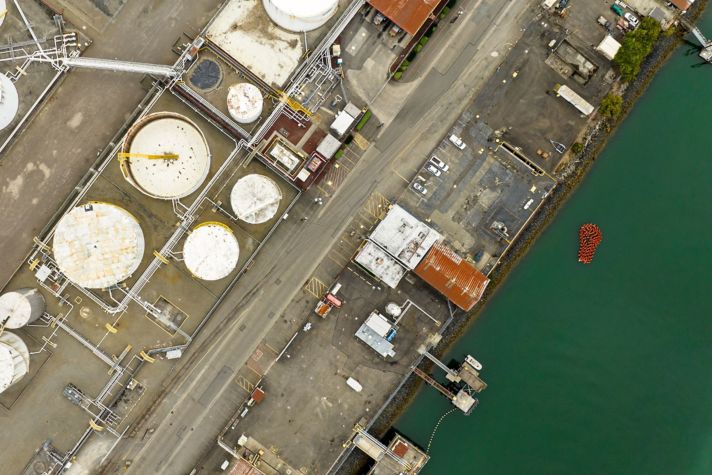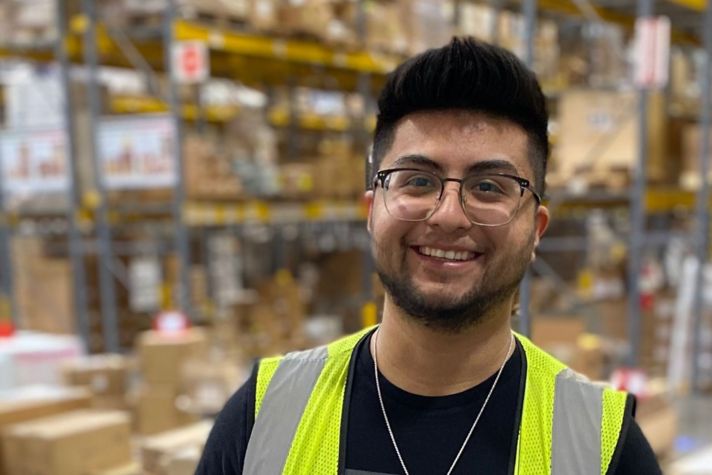-
 Global
Global-
Africa
-
Asia Pacific
-
Europe
-
Latin America
-
Middle East
-
North America
- |
- BUSINESSES
- |
- Contact
- |
-
 Global
Global-
Africa
-
Asia Pacific
-
Europe
-
Latin America
-
Middle East
-
North America
- |
- BUSINESSES
- |
- Contact
- |
You are browsing the product catalog for
- News
- How to Become an Engineer
How to Become an Engineer
Want to create the future? Here's some advice from a few of our more than 18,000 engineers
February 13, 2019
Just in time for Engineers Week, we found out what inspired these professionals to choose their career path.
 Naina Kumble
Naina Kumble
Director Engineering, Connected Aircraft
At Honeywell: 19 years (since interning)
Her job: As part of a software DevOps team, I bring together development, testing, infrastructure and operations to deliver value to our customers with speed and quality. We use modern technologies to automate everything in the software-development pipeline and create a five-star experience for our software developers, so they can spend more time developing software versus setting up tools and making things work.
What engineering means to her: In my opinion, engineering is about innovating and exploring alternatives to make the world a better place.
Advice: I would like to refer to this SWE ideas like “you'll have to tinker, invent, build” and “Look around you and be inspired by space, sky scrapers and smartphones” This inspires me every day and I hope it inspires others too.
Coolest project ever: One project that is closest to my heart is the Integrated Navigation Receiver we developed for the Boeing 787 aircraft. It is a safety critical system that provides automatic landing capabilities to the aircraft in zero-visibility conditions. My heart swells with pride every time I get to travel on a Boeing 787.
 Jenni Strabley
Jenni Strabley
Engineering Director, Operational Excellence, Aerospace
At Honeywell: 12 years
Her job: I oversee a global team working on critical business operations and engineering productivity. My group is responsible for the deployment and operation of the Aero Estimation Tool, the Aero Engineering Process and Test Resource Management. I recently accepted a new position our inertial sensors business.
Why engineering: My training is as a scientist and I have a PhD in atomic physics. In my case, I knew I wanted to be a scientist when I was in elementary school. I even built a laboratory in my parents' basement. I've been fortunate to meet and work with many great and inspirational people along the way, but I was most inspired by leaders who empowered me. One particular leader let me know that he trusted me and let me “run without fences.” Freedom and empowerment to do bold things with the security of trust is a great gift.
Coolest project ever: For five years, I worked on developing miniature atomic clocks. The project is the coolest ever because the atoms we used in the atomic clock were literally freezing, only a fraction of a degree above absolute zero. When atoms are this cold they don't move around much and you can make very precise and accurate clocks.
Advice: You can be a good engineer by being a smart person. You can be a great engineer by making the people around you better.
 Prabhat Ranjan
Prabhat Ranjan
Platform and Innovation Leader for Building Technologies
At Honeywell: 12+ years
His job: I work on solving real world customer problems which are aimed at building a world that is safer and more secure, more comfortable and energy efficient, more innovative and productive. As an employee of [our buildings business], I get to work on various control systems and Building Products and on blending physical products with software solutions to help our customers be more productive in their businesses.
Why engineering: For me, engineering has always been finding a real customer need and converting that need into a technical specification. I always get excited to map a problem domain to a solution space and actually see a transition where a real customer problem gets solved using innovative means. It's the steps involved and thinking that goes into solving a real-world problem, that excites me a lot.
Advice: As an engineer, always be in a pursuit to find a problem. Once you have a problem to be solved, your engineering brain will always find a solution to it. Sometimes or you can say even most of the times your customers don't know their real problems. Spend as much time in the problem domain searching for the right problem to solve. This is easier said than done because as engineers our brains are tuned towards finding a solution to a problem rather than finding a problem to be solved.
Coolest project: It had to be a three-day Hackathon. Within a span of nearly two days, we conceived an idea, prototyped the idea and demonstrated the idea. Our Idea was to sell purified air as a service. We were able to establish cloud connectivity, develop a mobile and web app solution and successfully demonstrated the concept within 2 days and our team won the first prize in the hackathon.
 Heather Dopilka
Heather Dopilka
Software Engineer, Process Solutions
At Honeywell: 31 years
Her job: I'm a product test engineer for the Experion Process Knowledge System distributed control system. I also design and maintain a test environment to support development and product testing of the network components.
Why engineering: I have a degree in physics with a computer science minor. My inspiration for being an engineer comes from the desire to understand why something's not working, solving why it doesn't work and finding a way to make it work better than it was. Plus, I am motivated by determining how to prevent failures in the future. Engineering is a career, not just a job you show up for 9 to 5 every day. Being an engineer means you can build and make changes, even if they are small, to alter how the world operates.
Advice: My three sons are engineers or studying to be engineers. In order to become an engineer, you need to get good grades and be disciplined in how you conduct your studies. Also, one should develop interests outside of school such as music, photography and application programming, with a desire to figure out how things work and what can be improved. Lastly, don't be intimidated that you are not smart enough - hard work and attention to detail helps be a great engineer.
 Candy Chatawanich
Candy Chatawanich
Sr. Director of Electric Power Engineering, Aerospace
At Honeywell: 12 years
Her job: I lead a team of more than 50 engineers across three Honeywell sites in the U.S. and Canada who design and support generators and power distribution systems for various aerospace applications.
Why engineering: I was good at math and science and I chose to be an engineer because I wanted to make a practical contribution to society.
Coolest project ever: I've worked on so many cool things, I can't pick just one! In a previous life I designed and launched the first OEM hard tonneau cover for the Explorer SportTrac, I served as the Body Engineering Program Module Team Leader for the 2009 MY Ford F-150, and I was the Project Engineering Leader for the bleed air systems for the all-new Airbus A350 and Boeing 737MAX aircraft.
Advice: If you have a passion for solving problems, go for it! Engineering is a rewarding career where you are continuously challenged with new problems to solve. An engineering mindset is applicable to a wide variety of opportunities &endash; not only to the diverse fields of engineering; but also, medicine, law and finance.
Copyright © 2024 Honeywell International Inc.




